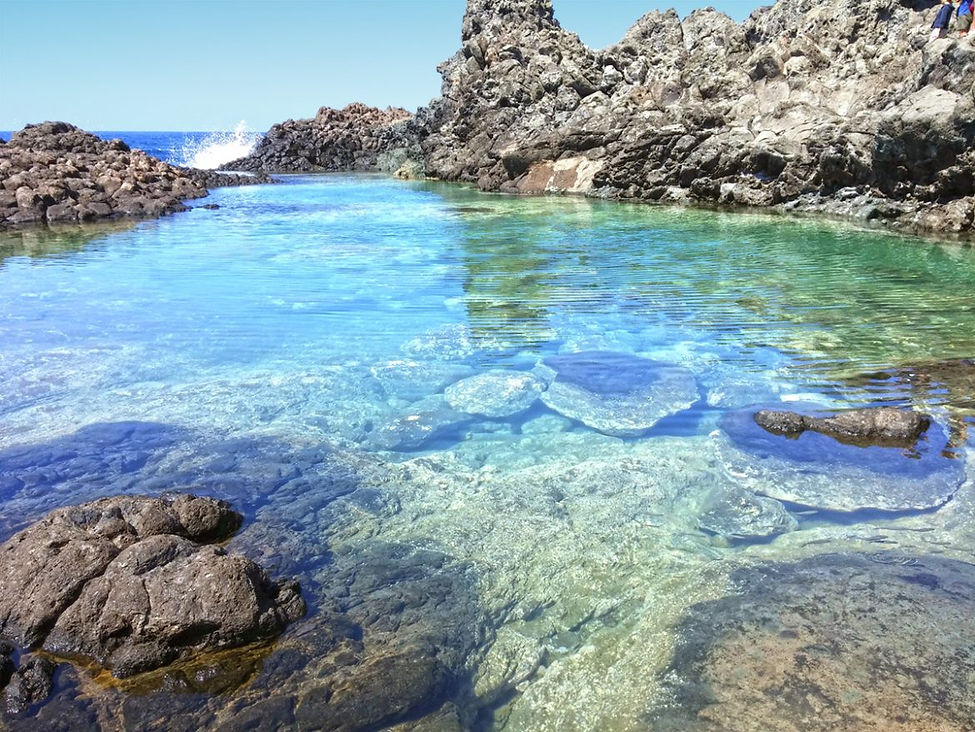
PANTELLERIA
In the geological and landscape stratification of the Pantelleria landscapes there is metaphorically the heartbeat of the earth.
In fact, the island entirely generated by volcanic activity is the mirror of life and of the dynamism of the subsoil.
The island in the heart of the Mediterranean, so close to Africa, is a trait-d'union between different worlds that actually have more points of contact.
Pantelleria, even more than the mother island of Sicily, is a melting pot of stories and cultures that derive from the many dominations. But Pantelleria is also a world unto itself, with anthropological and social differentiations, with a naturalistic and landscape dimension that is the result of the specific volcanic genesis but also of the way in which the islanders have relied with their environment. Think of the sapling vine born in the distant past by the concrete intelligence of the Pantelleria farmers, which due to the lack of water in the island and the action of strong winds, succeeded with effective pruning techniques to prevent the plants from growing in height and extended instead on the ground. Pantelleria is not only a place that fascinates but creates the curiosity of continuous discovery, and the natural scenery changes from area to area.
And it is also a place that contains different dimensions both to environmental-landscaping and to social customs that change in different fractions. Admiring the landscapes, the vineyards, the volcanic nature, the sea, you can go beyond the images themselves, you connect to another rhythm of time closer to the inner one, the space-time of the soul.
In respect to all the usual “western” standards you may be acquainted to Pantelleria but it’s still a “wild” island where the 4 elements of the nature are luckily still taking the lead.
This means that when the wind blows it may blow up to 80 miles per hour.
And when the sand storm from nearby Sahara is arriving all the white roofs became red because of the desert sand and the temperature rises.

Pantelleria is an “extinct” volcano, right in the middle of the channel of Sicily, closer to Africa (only 46 nautical miles from Kelibia in Tunisia) than Sicily. The most recent emissions of basaltic lavas date back to 9000 years ago, since then it has been for 7000 years a crossroads in the true heart of the Mediterranean literally in front of Carthage.
"To the east of Marettimo and to the south-east of Favignana, the island of Pantelleria faces on one side Nabul of Tunisia and on the other the coast between Sciacca and Mazara, equidistant from that coast and from this a day of navigation. Pantelleria is a fertile island, with wells, pastures and olive groves, abounds in goats passed from the domestic to the wild. In the southern part there is a safe haven for ships sheltered from several winds."
In fact, the Pantelleria gastronomy is influenced by the contributions of the various peoples who have dominated the island. Try the delicate bitter ravioli stuffed with local ricotta, mint leaves and the fragrant pesto pantesco: condiment made with grilled tomatoes, extra olive oil, garlic, basil and chilli, used either to season pasta or to accompany roasted fish or boiled meat. From the nearby Africa comes the Fish Couscous always accompanied by a variety of vegetables and legumes, generally served as a single main dish. Sciakisciuka: hot caponata with vegetables and Cuccurummà with the delicious local zucchini.
The famous capers find accommodation especially in the imaginative salads that with the delicate Tumma, the fresh local cheese, and the inebriating oregano give a special touch to all of the Pantelleria exotic cuisine.
 |  |  |  |  |
|---|
photo credits: Samuel Gorgone PANTELLERIA
"The island of Sicily is the pearl of the century for its abundance and beauty; the first country in the world for goodness of nature, frequency of housing and antiques of civilization. The travelers and the traffickers of the cities and the metropolises come to you from all sides, all of whom exalting it with one voice, attest to its great importance, praise its splendid beauty, speak of its happy conditions, of the various qualities that are welcomed in it. and the goods of every other country in the world that Sicily attracts to itself. Noble among all the others that remember history, were her dominations; very powerful above all the forces that the Sicilians prostrated who made them contrast. And truly the kings of Sicily are to be placed far ahead of all the other kings, by their might, for glory and for the height of their purpose."
from Idrisi: Ruggero's book
"When Neil Armstrong landed on the lunar surface, the TV announcer exclaimed excitedly: "For the first time in history, man has set foot on the moon".
We were spending the summer on the island of Pantelleria, at the extreme south of Sicily, and I do not think it exists in the world a more suitable place to think about the moon. I remember as in a dream the endless plains of volcanic rock, the still sea, the painted house a lime down the steps, from whose windows you could see in the windless night the light beams of the headlights Africa. Exploring the backdrops asleep around to the island ... we had recovered an amphora with garlands petrified that inside still had the residues of a unmodified wine from years, and we had done the bath in a steaming ‘gora’ whose waters were like this dense that one could almost walk on it.
I thought with a certain premonitory nostalgia that was so necessary be the moon.
But Armstrong's landing increased mine Patriotic pride. Pantelleria was better ... ".
Gabriel Garcia Marquez
(from Five-year note book)

